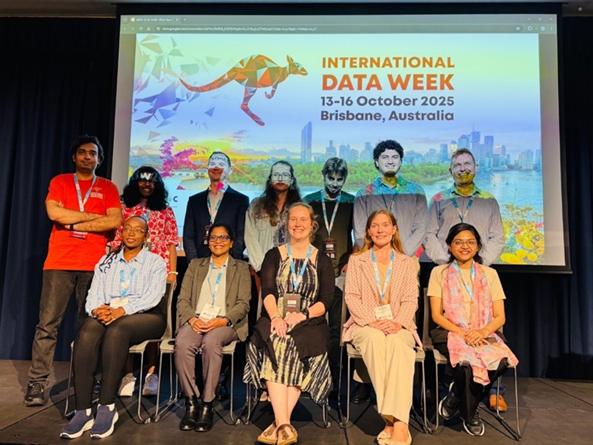By Bylhah Mugotitsa, Agnes Kiragga, Steve Cygu and Miranda Barasa, African Population and Health Research Center (APHRC).
If there was ever a place where coffee, curiosity, and code met perfectly, it was International Data Week 2025 in Brisbane. You could feel the excitement from the minute you walked into the Brisbane Convention and Exhibition Centre, the kind of energy that tells you something important is happening here. It wasn’t just about machine learning models or the latest frameworks; it was about people, relations, and future collaboration. From early-morning panels on open science to late-afternoon debates on ethical AI, every conversation carried the same heartbeat: data is no longer the property of machines; it is the language of humanity.
In our presentations and panel discussions by African Population and Health Research Center (APHRC) (Agnes Kiragga’s exploration of building sustainable data science ecosystems in Africa, Miranda Barasa’s insights on co-designing data infrastructures for collaborative research through the Data Science Without Borders (DSWB), and Mugotitsa Bylhah’s reflections on longitudinal data harmonization and integration under the INSPIRE Mental Health project), we found ourselves returning to a shared conviction: data must always return home. It must speak back to the communities it comes from, in language they understand, so that it can truly serve.
 The Philosophy of Data in a Changing World
The Philosophy of Data in a Changing World
Philosophers have long said that progress begins with understanding ourselves. In today’s world, that self-understanding is captured through data. Yet, as the Ghanaian philosopher Kwame Gyekye once said, “Knowledge must carry moral weight. It must serve community.” That is what Africa’s data movement is slowly but surely coming to embody: the moral dimension of measurement. From Nairobi to Dakar, Lusaka to Kampala, we are learning that data is not just about precision. It is about people, policy, and purpose. In Africa, we now promote data innovations developed by Africans, using African datasets and the broader African community.
At IDW2025, the sense of connection was real. Everyone seemed to recognize that the next chapter of data science will not be written in isolation. The conversations around “data without borders” were not just technical. It was about the idea that collaboration should transcend institutions, countries, and disciplines, allowing knowledge to move freely and ethically where it can do the most good. This aligned well with the purpose of the APHRC’s Data Science Without Borders Project (DSWB).
Read more on the CODATA blog https://codata.org/blog/2025/11/18/data-without-borders-reflections-from-international-data-week-2025-brisbane/
